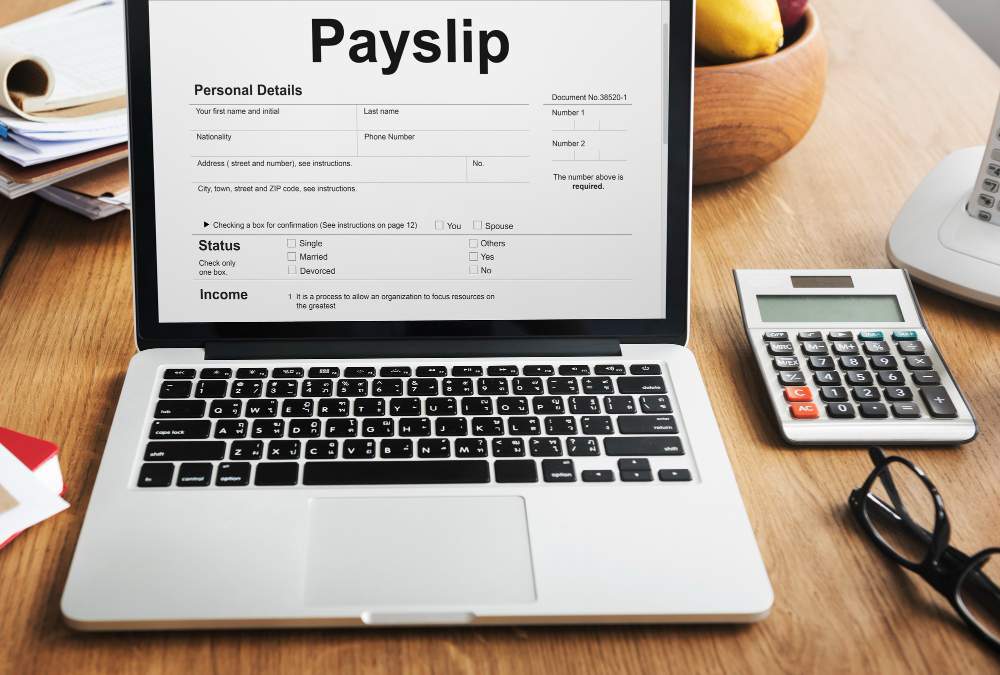
More Nigerians now juggle side hustles with 9–5 jobs. Find out why this trend is growing, the risks, and how Delon Jobs can help you build a better career
These days, it’s rare to meet a Nigerian professional who has only one thing going on. The average young worker in Lagos is closing tickets on a company laptop by day and processing customer orders on WhatsApp by night.
-Your colleague in finance is also a fashion vendor.
-That quiet software developer on your team runs a YouTube channel after hours.
-The HR executive you know? She’s mixing body oils and selling skincare products on Instagram.
Across Nigeria, many professionals no longer rely on a single full-time job. They are building side hustles either to survive, to chase a passion, and sometimes to prepare an exit route from their 9–5.
Let’s take a dive into why this shift is happening, how social media is driving it, what kind of hustles people are doing, and how you can balance everything without burning out.
Economic Pressure: The Biggest Driver
Whether people say it directly or not, the first reason for side hustles is money.
Salaries vs cost of living
For many professionals, salary no longer matches the rising cost of food, rent, transport, electricity, data, and school fees. There’s that familiar feeling of “salary don finish” by the second week of the month. It’s not surprising that the need for extra income has become a survival need, not a luxury.
Youth unemployment and underemployment remain a big concern, especially for those with post-secondary education, even though the official unemployment rate looks lower after methodology changes.
Even those who are lucky to have jobs worry about: Salaries that don’t increase, companies that owe for months, contracts that suddenly end, and job insecurity. Because of this, depending on just one employer feels risky. A side hustle becomes a form of financial backup. If something happens to the main job, at least there’s another stream to lean on.
Job security isn’t as strong as before
Older generations often believed that once you got a good job, you were secure for a long time. Today, people have seen abrupt layoffs and closures, and company restructuring. Many are convinced that no job is truly secure, so they prefer to create their own safety net through side gigs. Reports show how youth feel the impact of weak job opportunities and high cost of living, and they consistently call on government to address jobs and inflation.
When you know your job can disappear without warning, a side hustle feels like insurance. Even if the 9–5 goes, at least something is bringing in cash.
Popular Side Hustles Among Nigerian Professionals
If you look at conversations on blogs, YouTube, TikTok, and LinkedIn, some categories of side hustles appear repeatedly. Most of them can be done after office hours and with fairly low capital.
Freelancing and remote work
Freelancing is one of the most common side hustles. Nigerian professionals are using their skills to work as writers, designers, developers, social media managers, virtual assistants, and digital marketers for clients in Nigeria and abroad.
Some find jobs through international platforms, while others use local job boards like Delon Jobs or LinkedIn. The attraction is simple: you can work from home, choose your hours, and sometimes earn in foreign currency.
Selling products online
Another very popular angle is online selling. People run mini online stores on Instagram, WhatsApp, or simple e-commerce pages. They sell fashion items, gadgets, food, beauty products, and many other things.
Some use a full e-commerce setup with websites and payment gateways; others simply post on social media and accept transfers. The model is flexible. You can start small, test demand, and grow gradually.
Content creation
Content creation has moved from just vibes to a serious and sometimes the only income stream for many Nigerians. People now:
Run YouTube channels
Host podcasts
Make TikTok and Instagram Reels
Do live sessions and online classes
Revenue can come from ads, brand deals, affiliate marketing, and selling digital products or training. For a lot of people, content creation starts as a hobby and slowly turns into a proper side business.
Online tutoring and coaching
Tutoring isn’t new, but the online version has changed the game. Professionals teach WAEC/JAMB subjects, foreign exams, coding, design, data analysis, and even soft skills like communication and public speaking via Zoom, Google Meet, or simple WhatsApp groups.
This appeals to working professionals because they can schedule classes in the evenings or weekends while still holding their regular jobs.
How Social Media Has Normalised Side Hustles
Social media has done something powerful: it made side hustles look normal, even expected.
Multiple streams of income as a standard mindset
On X, TikTok, and Instagram, you constantly see phrases like “multiple streams of income,” “no rely on one salary,” and “9–5 plus something on the side.” People share screenshots of their earnings, record videos and vlogs of their daily lives, and freely talk about their side businesses.
When you consistently see your peers talking about their second and third hustles, it starts to feel like you are the one behind if you have only one income source.
Role models and success stories
There are many stories of people who:
-Started a small side hustle and grew it into a full business
-Used freelance work to earn in dollars while living in Nigeria
-Transitioned from office job to full-time creator or entrepreneur
These stories spread quickly online and inspire others to try something similar. Whether or not every story is as perfect as it seems, you can always try more than one thing at once.
Why 9–5 Jobs Alone Don’t Feel Enough Anymore
Most Nigerians are not anti–9–5. They just no longer see it as the only path to success.
Limited growth and slow salary progression
Many professionals feel stuck in roles where:
-Promotions are slow
-Training is limited
-Pay raises don’t match inflation
When they compare that to the potential of a thriving side business or remote contract, the traditional 9–5 job starts to look like only one part of the bigger picture.
Desire for control and creativity
At work, you’re expected to follow established processes, and hierarchies. In your own side hustle, you set the rules. You choose your brand, your customers, your message, and your priorities. It’s a space to experiment and to bring your own ideas to life.
For many people, the side hustle is where their real passions show up: fashion, beauty, photography, tech, food, logistics, media, and so on.
Planning for the future: Japa, relocation, and flexibility
Many side hustles are also part of a bigger plan. Some people are using them to:
-Save up for relocation or international studies
-Build a global portfolio so they can work from anywhere
-Gain experience that will be valuable in foreign markets
In this sense, a side hustle can be a long-term strategy, not just extra cash for bills.
The Downsides: Burnout, Conflict, and Scams
While social media mostly shows the glitter, many Nigerians also speak openly about the stress of juggling multiple things.
Burnout and health issues
A common routine for some professionals looks like this:
-8 a.m. – 5 p.m.: full-time job
-Evening and late night: side gig work
-Weekends: fulfil orders, respond to clients, record content, or teach classes
Doing this for months without rest can lead to chronic tiredness, loss of focus, instability and health problems. Some people admit they are always exhausted and barely have time for family, friends, or themselves.
Tension with employers
If side hustles are not handled carefully, they can create problems at work. Employers may become suspicious if performance drops, deadlines are missed, or staff are distracted during office hours.
Some companies now include stricter policies about outside work in their contracts. They want to avoid conflict of interest and make sure employees are fully committed during working hours.
Scams and unrealistic promises
The hunger for extra income has also attracted scammers. People are regularly warned online to beware of:
-Too good to be true investment schemes
-Fake job offers that demand money upfront
-Training programmes that promise big income but deliver very little
-One way to stay safe is to use trusted platforms for real job and project opportunities, and to research any scheme before you pay or share personal data.
How to Handle a Side Hustle Without Destroying Your 9–5
Since side hustles are here to stay, you should know and plan well on how to manage both without crashing.
Build around your skills
The most sustainable side hustles are built around skills you already have or can realistically learn. Instead of jumping into every new trend, look at:
-What you do well at your current job
-What people already ask you to help with
-What you enjoy enough to keep doing when you’re tired
This increases your chances of staying consistent and actually making money.
Protect your main job
Your 9–5 is still your foundation. Use it to pay bills, build experience, and finance your side projects. To protect it:
-Keep side hustle work outside office hours
-Avoid using company devices or data for personal business
-Make sure your performance remains strong and professional
You don’t want to lose your main income because of poor boundaries.
Look after your health and time
Try to:
-Set fixed side-hustle hours and stick to them
-Take at least one day a week to rest
-Use simple tools (calendar, task list apps, reminders) to plan your week
The aim is to grow steadily, not to collapse from overwork.
Use genuine platforms and communities
Instead of walking alone, it helps to plug into:
-Reliable job sites like Delon Jobs
-Professional communities on LinkedIn
-Honest online mentors and trainers
This kind of support makes it easier to find good opportunities and avoid fake ones.
Side hustles are important, but good jobs are still the backbone of financial stability for most Nigerians.
Better jobs for better foundations
Delon Jobs focuses on connecting Nigerian professionals, especially in tech and other skilled roles, with quality opportunities. These include:
Full-time roles that pay better and offer growth
Remote and hybrid jobs that allow more flexibility
Contract or project-based roles that can complement a main job
When your main job is better, everything becomes easier: you can save more, invest more, and avoid desperate side hustle decisions.
Career guidance that reflects today’s realities
On the Delon Jobs blog, you’ll find practical advice on CV writing, interview prep, remote work, tech careers, and navigating the modern job market. The content doesn’t pretend that people only have one job. It recognises the real Nigerian experience of juggling work, hustles, and future plans.
Side Hustles and 9–5 Jobs Can Work Together
Nigeria’s work culture has changed. A single salary no longer feels safe, and the idea of having just one professional identity is fading. Side hustles have become a normal part of life for many professionals, offering extra income, creativity, and long-term options.
However, they also come with risks: burnout, strained relationships at work, and possible exposure to scams. The key is balance, building side income carefully, protecting your main job, and focusing on real skills rather than hype.
Why Delon Jobs should be part of your journey
If you’re serious about building a stronger financial future, whether through a better 9–5, a remote role, or structured project work, Delon Jobs is a smart partner. It helps Nigerian professionals discover quality job opportunities, especially in tech and other high-demand fields, while also providing career guidance that fits today’s multi-hustle reality. Instead of guessing your way through the job market, you can lean on Delon Jobs to upgrade your main income, explore flexible roles, and build a career that supports both your current needs and your long-term dreams.



















